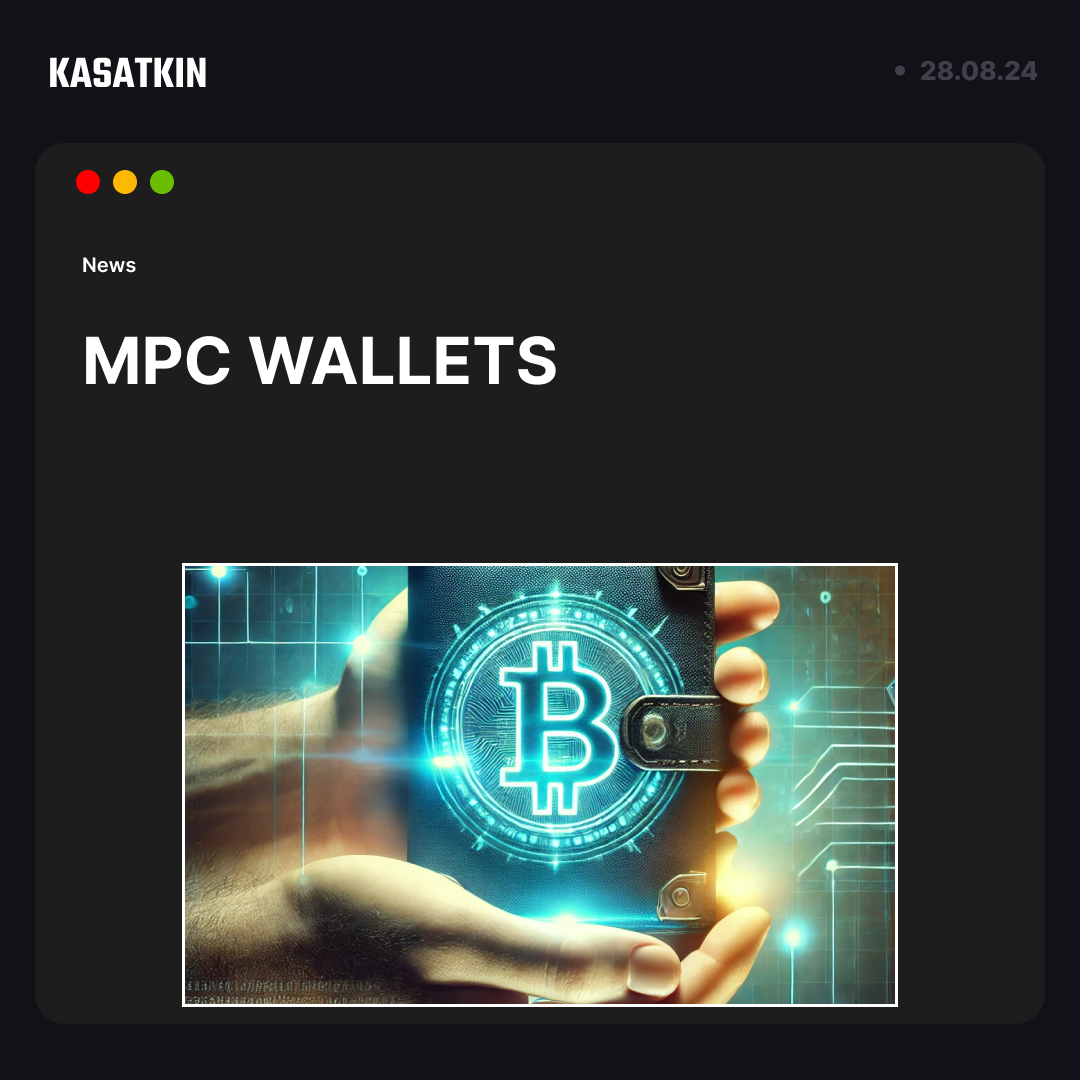KASATKIN
MPC wallets
A new level of security in the world of cryptocurrency
A new level of security in the world of cryptocurrency
Cryptocurrency wallets play a crucial role in the digital asset space, providing secure storage and management of funds. However, as technology evolves, so do the security threats associated with it. To address these challenges, new solutions are emerging, and one of the most innovative among them is the MPC wallet. MPC, or Multi-Party Computation, is a cutting-edge technology that offers an unprecedented level of security for cryptocurrency wallets.
What are MPC wallets?
MPC wallets are the next generation of cryptocurrency wallets that use Multi-Party Computation technology to protect funds. In traditional wallets, such as hardware or software wallets, security is based on the storage of a private key. If a malicious actor gains access to this key, they can control the funds. In MPC wallets, the private key is not stored in a single location—instead, it is divided into multiple parts, each held by different participants.
Each transaction requires consensus among the participants holding the key shares. Thanks to this approach, even if one part of the key is compromised, an attacker cannot access the funds without cooperation from the other participants. This makes MPC wallets significantly more secure compared to traditional solutions.
Benefits of MPC wallets
High Level of Security. The division of the private key into multiple parts, distributed among different participants, greatly reduces the risk of hacking. Even if an attacker gains access to one part, it’s not enough to complete a transaction.
Protection Against Key Theft and Loss. In traditional wallets, the loss or theft of the private key leads to the loss of all funds. In MPC wallets, such a scenario is nearly impossible because the key never exists in its full form on any single device.
User-Friendly Experience. Despite the complex architecture, MPC wallets can be user-friendly, with intuitive interfaces and integrations with popular platforms. Users can perform transactions without worrying about key security.
Flexibility. MPC wallets can be configured to include various participants, such as multiple family members or business partners, to manage a single wallet. This allows for distributed responsibility and enhanced security in asset management.
Resilience. If one participant (e.g., someone loses access to their device) fails, other participants can still manage the wallet, making the system more resilient to failures.
How do MPC wallets work?
The operation of MPC wallets is based on the cryptographic protocol of Multi-Party Computation. The private key used to sign transactions is split into several parts (shares) using complex mathematical algorithms. These shares are distributed among different participants or devices.
When a user wants to initiate a transaction, each participant uses their key share to perform computations that result in the creation of a digital signature. It’s important to note that the key shares never combine into a whole—this prevents the possibility of compromise.
This process allows the creation of a digital transaction signature without any participant ever having access to the full private key. This is what ensures the high level of security that MPC technology offers.
Use cases for MPC wallets
MPC wallets can be beneficial in various scenarios:
Corporate Wallets. In business, there is often a need for distributed asset management where multiple responsible parties require access to funds. MPC wallets are ideal for such cases, providing security and distributed authority.
Family Wallets. In some families, cryptocurrency assets may be jointly managed by several members. MPC wallets allow for shared management, eliminating the risk of unauthorized access.
Asset Management in Funds and Trusts. Funds managing cryptocurrency assets can use MPC wallets to distribute management and enhance the security of their investments.
High-Security Personal Wallets. Users who prioritize the security of their assets can use MPC wallets for personal storage of large amounts of cryptocurrency.
The future of MPC wallets
MPC technology is in an active stage of development, and more cryptocurrency platforms are beginning to integrate it into their solutions. In the near future, we can expect new features and improvements aimed at enhancing the usability and accessibility of this technology for a wide range of users.
MPC wallets could become the security standard in the cryptocurrency industry, especially as attacks on traditional solutions increase. Investors and companies looking to protect their assets will increasingly turn to these wallets.
Conclusion
MPC wallets represent a significant advancement in the security of cryptocurrency assets. Using Multi-Party Computation technology, they offer users a much higher level of protection compared to traditional solutions. Although this technology is still relatively new, it is already demonstrating its potential and is becoming increasingly popular in the world of cryptocurrency. If you’re looking for a reliable and secure solution for storing your digital assets, MPC wallets are an excellent choice that will help protect your funds from the threats of the modern world.
